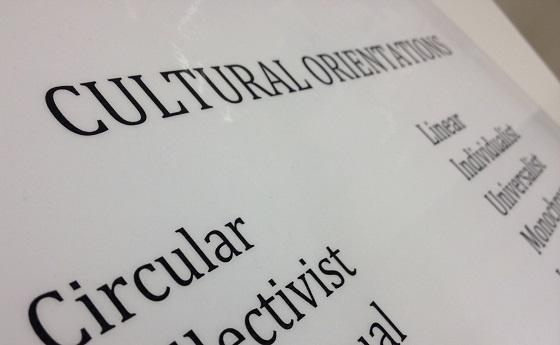r4d Skills Trans-cultural communication

The objective of the workshop was to support the participants in refining the quality of their daily interactions with their peers and interlocutors, especially those having different social and cultural backgrounds.
| Start | 05.02.2016 08:15 |
| End | 05.02.2016 15:45 |
| Venue | Berner Generationenhaus |
| Registration deadline | 05.02.2016 |
Developing competences
The projects in the r4d programme are carried out in transnational research partnerships involving people from countries in Europe, Africa, Asia, and Latin America. The r4d Skills workshop developed important competences in trans-cultural communication.
Some people prefer a direct and straight to the point communication style; their priority is the clarity of the message. Others prefer to maintain harmonious relations with everyone and tend to communicate in a rather indirect and roundabout way. There is no right or wrong or good and bad.
The r4d Skills workshop Trans-cultural communicationthese offered the 25 participants an opportunity to explore seven different dimensions of cultural orientation. With an online questionnaire and during the workshop they became aware of own values, behaviours, and comunication styles.
Being aware of the fact that cultural orientations influence the way we communicate and how we perceive communication is an important prerequisite for effective collaboration.
The excercise 'dialogue without questions' revealed that the use of questions is not necessary to establish a meaningful dialogue - they might even hinder to listen to a partner.
The 'Focused conversation' tool (Objectives - Refelections - Interpretation - Decision) allows moderating misunderstandings and conflicts emerging during communication.
Daniel Glinz from the Centre for Information, Counselling and Training for Professions relating to International Cooperation (cinfo) facilitated the workshop together with Ana Krebs based on their own professional experience and literature on the topic (e.g. from Geert Hofstede, Kluckhohn & Strodtbeck, Edward T. Hall, Schulz von Thun).
